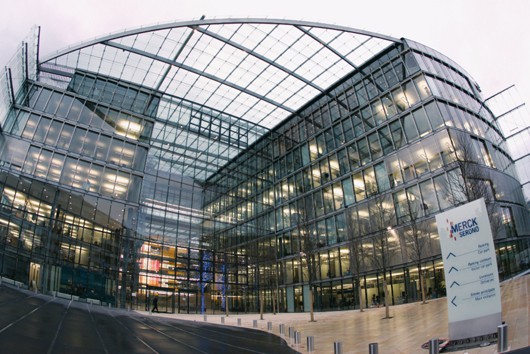
Merck Serono has staked a claim to the emerging chimeric antigen receptor T-cell (CAR-T) cancer therapy sector with a $941m alliance with Intrexon.
Intrexon and Merck Serono – the biopharmaceutical arm of Germany’s Merck KGaA – will work together on the development of a therapy for cancer based on CAR-T, which can be engineered to recognise and attack antigens found on tumour cells.
Along with checkpoint inhibitors such as the PD1 inhibitors now launched by Merck & Co and Bristol-Myers Squibb, CAR-T is one of the most eagerly anticipated developments in the field of cancer immunotherapy, even though the approach remains largely untested in clinical trials.
The promise of the technology lies in its broad applicability across multiple cancer types and that has sparked a flurry of licensing activity in the CAR-T space.
For example, Amgen signed a $1bn deal with Kite Pharma in January, Johnson & Johnson (J&J) paid up to $625m for rights to MacroGenics’ MGD011 candidate the previous month and Pfizer cut a $265m deal to partner with Cellectis earlier in 2014.
Merck Serono’s deal with Intrexon gives it exclusive access to the biotech’s T-cell engineering capabilities – recently bolstered by an agreement with the University of Texas MD Anderson Cancer Centre in the US.
Intrexon will develop candidates up until the filing of approval to start clinical trials, with Merck Serono taking over responsibility for the programmes thereafter.
“The collaboration with Intrexon underlies Merck Serono’s focus on innovation, and enhances its R&D technology portfolio in immuno-oncology,” said chief executive Belen Garijo, alluding to the company’s checkpoint inhibitor candidate MSB0010718C which was partnered with Pfizer in a $2.85bn deal last November.
“Moreover, it showcases Merck Serono’s commitment to developing therapies that have the potential to significantly evolve the way cancer is treated,” added Garijo.
Under the terms of the agreement, Intrexon will receive an upfront payment of $115m. For the first two targets of interest selected by Merck Serono, Intrexon will up to $826m in research funding, development, regulatory and commercial milestones, as well as tiered royalties on product sales.
Other companies active in the increasingly crowded CAR-T therapy sector include Juno Therapeutics – whose lead candidate JCAR015 is in phase I testing – and Novartis which has CTL019 in phase II. Both are being developed in the first instance for haematological cancers. Celgene also joined the hunt recently via an alliance with Bluebird Bio.




